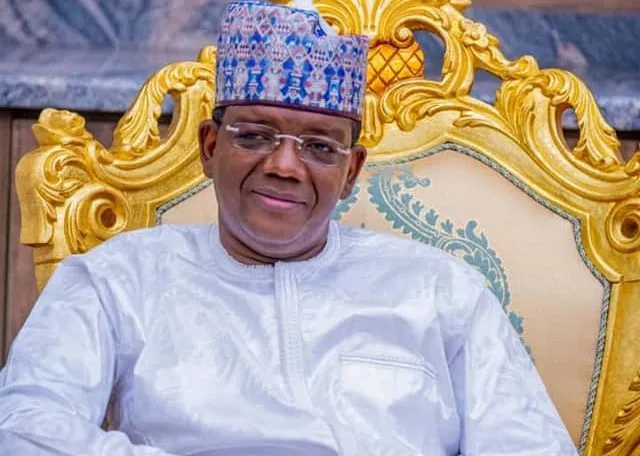A popular Native American saying teaches the lesson of empathy by advocating that one needs to walk in another man’s pair of moccasins to know how he feels.
Simply put, the saying is asking one to put oneself in other people’s situations in order to know how they feel or why they react the way they do. This saying and its whole essence seem to explain one of the most important national discourses in Nigeria today— local government autonomy.
Since the Supreme Court gave its verdict on a case initiated by the Federal Government, which prayed the court to give an order compelling the payment of local government allocations directly to the 774 Councils in the country, opinions have been largely divided in the country. But most opinion givers seem ready to go for the jugulars of those who do not celebrate the judgment. That should not be the case.
The judgment had granted this prayer, while also giving an order that local governments without elected officials should not be paid monthly allocations, among other orders. While the public space has been abuzz with quotable quotes from latter day freedom fighters and momentary advocates of local government autonomy, those who do not see things their way have also had a field day condemning a judgment, which they described as being against the spirit of the 1999 Constitution of the Federal Republic of Nigeria (as amended).
For those in the first group, local government autonomy had been long overdue. They noted that the judgment has freed the councils from the grips of governors, whom they have continued to rail against since the judgment was given. They decry the way and manner some governors have allegedly been spending councils’ funds and how they have reportedly been stifling governance at the grassroots. With the judgment, this group believes that council areas will now be able to serve the people better, providing developmental services that will make life easier for the people. They are entitled to hold these views and no one can castigate them for it.
However, the second group, which appears to be in the minority and has been less vociferous in their arguments, has governors, lawyers and other individuals who point out how the judgment of the Supreme Court has clashed with the provision of the Constitution in Sections 7 and 162. Among the individuals who have spoken out loudly in this group is Governor ‘SeyiMakinde of Oyo State. According to Governor Makinde, the judgment has created a constitutional lacuna and is certainly going to throw up many challenges that need to be looked at and solved.
The governor, who has never shied away from taking difficult decisions in challenging times, had immediately set up two committees comprising players in the local government system to look at how the challenges likely to be thrown up by the judgment can be addressed in a way that the people of the state will not suffer. Following his words and actions, however, many critics in the first group of those celebrating the judgment came for the governor, describing him as being against local government autonomy. Some even accused him of trying to review the Supreme Court judgment. But is this really the situation? No.
The premise for Governor Makinde’s position on the LG autonomy issue is clear. However, it will take individuals with open minds and the readiness to see things from other people’s point of view to understand where Governor Makinde is coming from and why he held the views he aired. It is not a secret that states and local governments in the country operate what is known as the State Joint Local Government Account. It is from this account that salaries, pensions and gratuities of local government workers, primary school teachers, Primary Health Care workers, Health Officers and retirees across the sectors are deducted from source based on agreed templates by the Joint Account Allocation Committee comprising states and the councils. There was a period in this country when these statutory payments were erratic and some council areas were unable to meet their obligations. There had also been days when some council areas claimed to have received zero allocations following the weight of salaries and pensions that they bore. Whatever and whoever brought about the State Joint Local Government Account as enshrined in the 1999 Constitution as amended did well to address this challenge. Could Governor Makinde have taken the position he took because he didn’t want Oyo State to return to those days when some LG workers, primary school teachers, health workers and pensioners were owed salaries and pensions for months and gratuity obligations were unmet for years? Possibly.
In one of his engagements on the matter, the governor explained how he met arrears of gratuities dating back to 2012. The governor took office in 2019, meaning that local governments in the state had failed to pay pensions and gratuities of retired local government workers for years despite federal allocations. The governor explained how he paid billions to take care of the debts owed to the pensioners by past administrations. He also made it clear that the gratuity debts to be paid including arrears and those of workers that will retire between now and 2027 is about N55 billion. What happens to these gratuities and the toils of heroes and heroines who have retired across the 33 local governments once the autonomy takes effect and each council is to own and control its money solely? Will pensioners who are not indigenes of a particular council still be allowed to draw pensions from the resources of that council without hassles or will they move to the councils of their origin? Knowing how difficult things have been with indigene-settler challenges and other sundry issues, can the Federal Government guarantee the smoothness of the process? Please, do not wave this off, because that judgment, which Certified True Copy everyone has not seen, could not have taken care of these fears, because the court does not grant prayers that are not sought. Could these fears be one of the reasons driving Makinde’s viewpoint? Possibly.
It is also not a secret that governance has been largely trans-spatial in Nigeria, with the thin line demarcating the three tiers often crossed through different programmes, actions and policies especially when it has to do with infrastructure building and other matters. For instance, it is on record that there has been a little or no demarcation between the states and the local governments, unlike the dichotomy that exists between the Federal Government and the two other tiers. In that way, it was quite common for state governments to fix federal and local government roads than it is for the Federal Government to fix state roads. This is one area that Governor Makinde has succeeded greatly and had been praised for prioritising his people beyond dichotomies emplaced by the constitution. The Oyo State government fixed the 34km Oyo-Iseyin Road, a federal road, to everyone’s admiration and Governor Makinde was not criticised for it. In the same vein, about 33km of internal roads were rehabilitated and commissioned by the governor recently while others are still ongoing, to the admiration of residents. Governor Makinde’s reaction was clear in that the judgment passed on the matter should have affected states perpetuating the illegality of not conducting council elections, rather than states that have not flouted laid down rules like Oyo.
Has anyone also stopped to wonder whether the Oyo State governor, and indeed, those speaking against the judgment, are considering the sensitivity of LG autonomy without proper structures to ensure that people, who draw payments from the LG system, do not suffer unnecessarily? Has anyone asked why the Federal Government could not implement the judgment immediately and what according to the Minister of Finance, Wale Edun, are the practical impediments to the judgment? Is anyone going to ask why the Federal Government had to set up a committee to look at the practicality of the judgment they are celebrating? Wasn’t that what Governor Makinde did that some people are criticising him for? Sadly, most Nigerians have not taken the time to ask the critical questions on why those who appear not to be jubilant on the Supreme Court judgment have been hesitant. No. It has been a season of pumping fists into the air over the judgment, though many of those celebrating the judgment do not know how the local government system works.
Can we, instead of joining the caravan solidarity, ask the Federal Government how it intends to handle all payments being made by local governments? Will the Federal Government now pay the salaries, pensions and gratuities of primary school teachers, health workers and pensioners? How will it handle the gaps in situations where some council areas have a high number of workers and some have less, gaps which the JAAC has been addressing smoothly? What happens with states that have created LCDAs, which is within their rights to do as shown by the judgment President Bola Tinubu got against the Federal Government, while he governor of Lagos State? Will the Ministries of Local Government and Chieftaincy Matters in states be scrapped and replaced by an agency of the Federal Government too, as the National Assembly is trying to with SIECs? And will the Local Government Chairmen no longer seek or need approval from states to make spending beyond a certain threshold or would Mr President become the approving authority in that regard?
What about chieftaincies, would the Federal Government now approve the installation and crowning of Obas too, since states are now being made the scapegoats for what can be described as a general Nigerian problem? These are the hard questions that Governor Makinde must have asked himself; the real questions that his colleague-governors must have asked, though some of them chose to be silent until the false structure and hopes being built by the recent judgment collapse.
Now, as they have done against my principal and governor of Oyo State, I expect those who read this piece and hold a different opinion to come for me too, but before anyone thinks of doing so, I would rather he/she helps us all to make sense of the kind of autonomy that Federal Government is seeking to grant Councils by weaning them off states, while tying them to its own apron strings.














